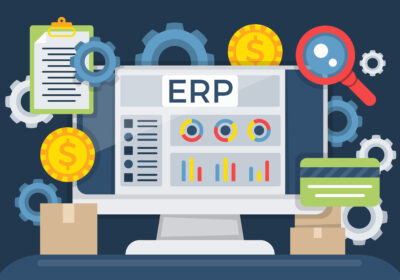Managing operations efficiently and effectively is paramount. Enterprise Resource Planning (ERP) systems have emerged as indispensable tools to help organizations achieve this goal. By integrating various departments and functions into a unified platform, ERP systems streamline processes, improve decision-making, and drive overall business performance.
What is ERP?
ERP stands for Enterprise Resource Planning. It is a software application that integrates various business functions and processes into a single system. This includes finance, human resources, supply chain management, customer relationship management (CRM), and more. By consolidating data and automating tasks, ERP systems provide a comprehensive view of an organization’s operations.
The Benefits of ERP
- Enhanced Decision Making: ERP systems collect data from across the organization, providing a holistic view of business performance. This enables informed decision-making based on real-time insights and analytics.
- Improved Operational Efficiency: By automating repetitive tasks and streamlining workflows, ERP systems significantly enhance operational efficiency. This leads to cost savings, increased productivity, and faster time-to-market.
- Better Financial Management: ERP systems offer robust financial modules, including accounting, budgeting, and forecasting. This helps organizations maintain financial health and make sound financial decisions.
- Enhanced Customer Satisfaction: ERP systems support effective customer relationship management by providing a centralized view of customer data. This enables businesses to deliver personalized experiences and improve customer satisfaction.
- Supply Chain Optimization: ERP systems optimize supply chain operations by managing inventory, procurement, and distribution. This helps to reduce costs, improve delivery times, and prevent stockouts.
- Risk Management: ERP systems provide visibility into potential risks and vulnerabilities, enabling organizations to take proactive measures to protect their assets and reputation.
- Scalability and Flexibility: ERP systems can adapt to the changing needs of a business. They can be scaled to accommodate growth, new business units, and evolving market conditions.
Implementing ERP: Challenges and Considerations
While ERP systems offer numerous benefits, implementing them can be complex and time-consuming. Challenges include:
- Cost: ERP systems can be expensive, both in terms of software licensing and implementation costs.
- Customization: Tailoring an ERP system to meet specific business requirements can be challenging and time-consuming.
- Change Management: Implementing ERP involves significant organizational change, which requires effective change management strategies.
- Data Migration: Migrating data from existing systems to the ERP can be complex and error-prone.
To overcome these challenges, careful planning, and execution are essential. It is also crucial to involve key stakeholders throughout the implementation process.
Conclusion
ERP systems have become indispensable for businesses seeking to optimize operations, improve decision-making, and drive growth. By providing a centralized platform for managing core business functions, ERP systems empower organizations to achieve greater efficiency, profitability, and customer satisfaction. While implementing ERP can be challenging, the long-term benefits often outweigh the initial investment.
By carefully considering the specific needs of your organization and selecting the right ERP solution, you can unlock the full potential of this powerful technology.





